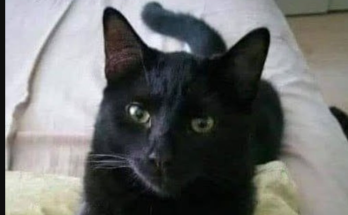When my father passed away, I expected the days that followed to be filled with paperwork, quiet moments of grief, and the usual responsibilities that come with saying goodbye to a parent. What I didn’t expect was a phone call from his lawyer asking me to come in for the reading of his will.
As his only child, I knew he didn’t have much. My father lived a simple life, working hard, loving quietly, and never drawing attention to himself. So when I sat down in the lawyer’s office, I assumed it would all be straightforward—maybe a few personal belongings, a bit of paperwork, nothing more.
But then the lawyer cleared his throat and said the words that would change everything:
“As per your father’s wishes… he has left his house to you.”
For a moment, I thought I misheard him.
The house? That old home I grew up in?
I felt a wave of emotion I wasn’t prepared for. That house was more than wood and paint—it was where my childhood lived. And now, somehow, it was mine.
The lawyer continued, explaining that my father had spent years quietly fixing and improving the place. He had repaired every squeaky floorboard, reinforced the stairs, repainted the walls, and restored worn-out corners. Each improvement was done slowly, patiently, and without a word.
He never mentioned any of this to me—not even once.
The lawyer smiled gently as he added, “He wanted it to feel like a gift, not a burden.”
I sat there speechless. While I had been busy building my own life, my father had been carefully preparing something meaningful for me. It wasn’t money or valuables—it was love shaped into a home.
When I finally unlocked the door and walked inside, it felt like stepping into a memory. The familiar scent, the quiet echo of the hallway, the sunlight streaming through windows I remembered from childhood—it all wrapped around me like a warm embrace.
But what struck me most were the little details.
The doorframe he once used to measure my height was sanded and polished.
The kitchen tiles I used to help him clean were replaced with new ones, shining and neat.
Even the old living room window—the one that stuck every winter—opened smoothly, as if it had never been a problem at all.
Every change told a story I didn’t know he had been writing.
Standing there, I realized something powerful:
Love doesn’t always show itself through grand gestures. Sometimes it appears in the quiet efforts, the late-night repairs, the thoughtful touches no one else sees.
This house wasn’t just his final possession.
It was his final message.
A reminder that even when words fail, love finds a way to stay.
As I walked through the rooms, I felt his presence everywhere—not in sadness, but in gratitude. The home he left behind wasn’t simply a gift.
It was a part of him, one last embrace, one final way of saying:
“You’re not alone. I’m still with you.”




